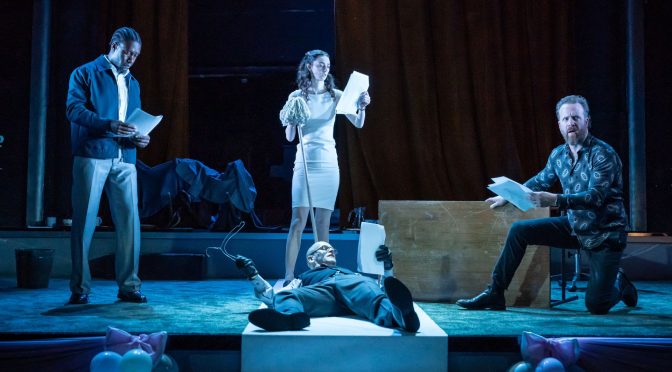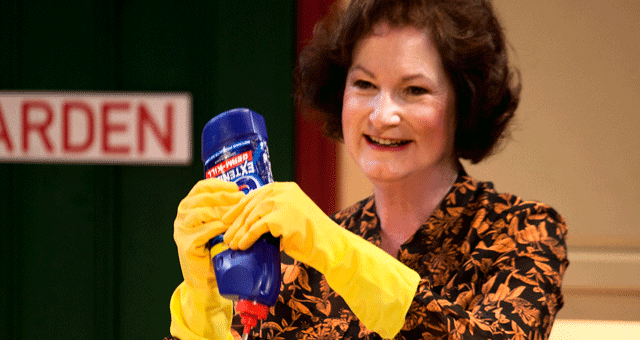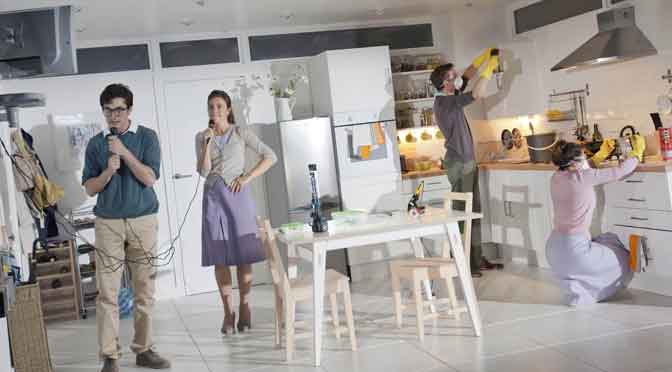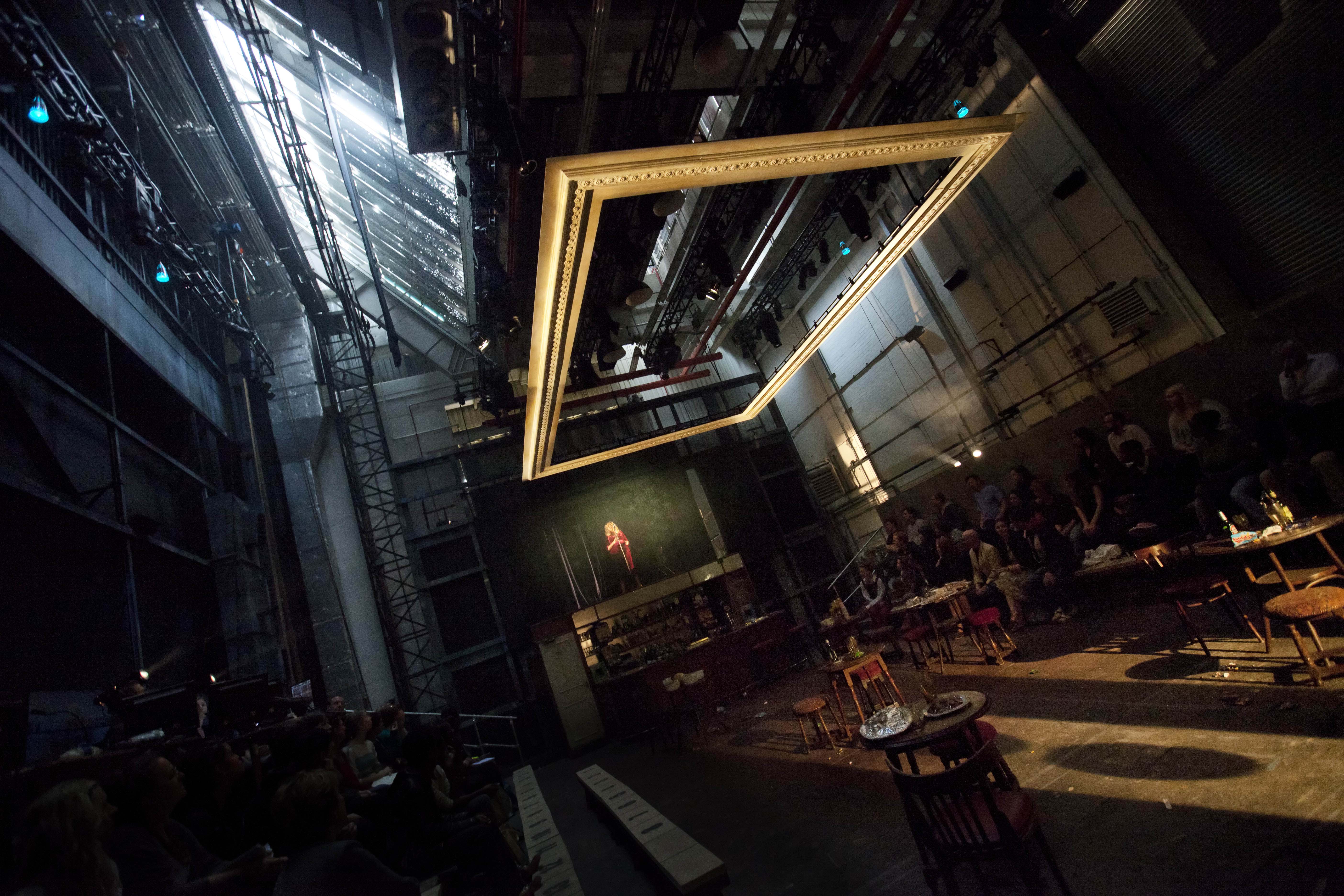Debates on aesthetics aren’t for all, but Sam Holcroft’s puzzle piece – a transfer from the Almeida Theatre – is an entertaining hit. The play is clever, self-consciously so, often funny and profound. If it lacks originality, a great production directed by Jeremy Herrin powers through to secure success.
In a generic dystopia (such set-ups often annoy me, but that’s a personal preference) we are gathered for the illicit performance of a play. It’s a good go at getting the audience involved and Herrin always does this well. And yes, it’s a play within a play. Specifically, about a young writer, Adem, whose work uses verbatim conversations and, since this regime isn’t keen on reality, is therefore dangerous.
One of many twists is that our censor, named Čelik, is civilised. He wants to nurture talent and has already done so with a national treasure, another writer brought in for a very funny workshop scene. But the result of that reading is a play based on the scene we’ve just seen. So, I guess, it’s a play within a play within a play, that we’re watching.
There’s a love triangle, too. Which feels a bit of a distraction, although it makes a strong role for Tanya Reynolds stuck between the two men. Maybe the point is how messy art can get (although I doubt a ruthless regime would care about #MeToo moments). It’s a shame you can see a final twist coming from way off. Or maybe Holcroft is being generous – allowing us to feel as clever as she is.
It might all be thought a lot just to ask if plays should be a mirror of reality rather than escapism or inspiration. Such questions are hardly new. Nor are ideas about how politically dangerous plays might be. But, and it’s a big but, the ideas are given urgency and dramatic tension. Considering the strong plotting, structure and characters – basically, the mechanics of writing a play – Holcroft comes close to being impervious to criticism.
It should be stressed that the performances help. Jonny Lee Miller takes the part of the censor with a sense of mischief that is wholly appropriate. He can be scary, but also vulnerable. Samuel Adewunmi and Reynolds have nice lines in naivety – when it’s appropriate. Don’t forget, when everyone first appears it is as an actor. That another identity is revealed makes for layered performances that are easy to enjoy and admire.
A problem remains. For all the script’s smarts, and a strong production, there’s a sense that we’ve seen a lot of this before. Playwrights like writing about plays. Even the concern that an audience doesn’t want revolt but, rather, a gin and tonic (good line) has been pointed out. The game is played well. A Mirror is a great night out. But is that a judgement on how any effort to be serious is pointless? Let’s hope not.
Until 20 April 2024




